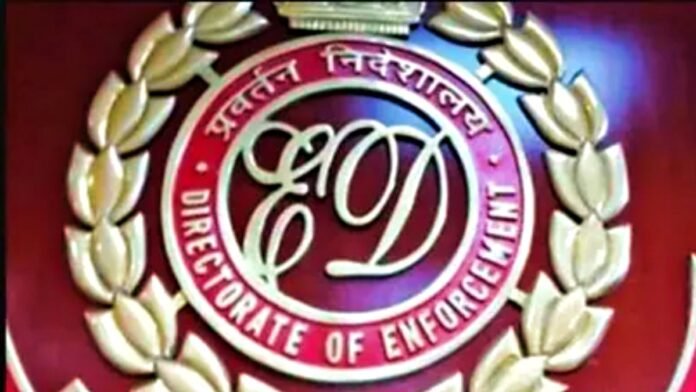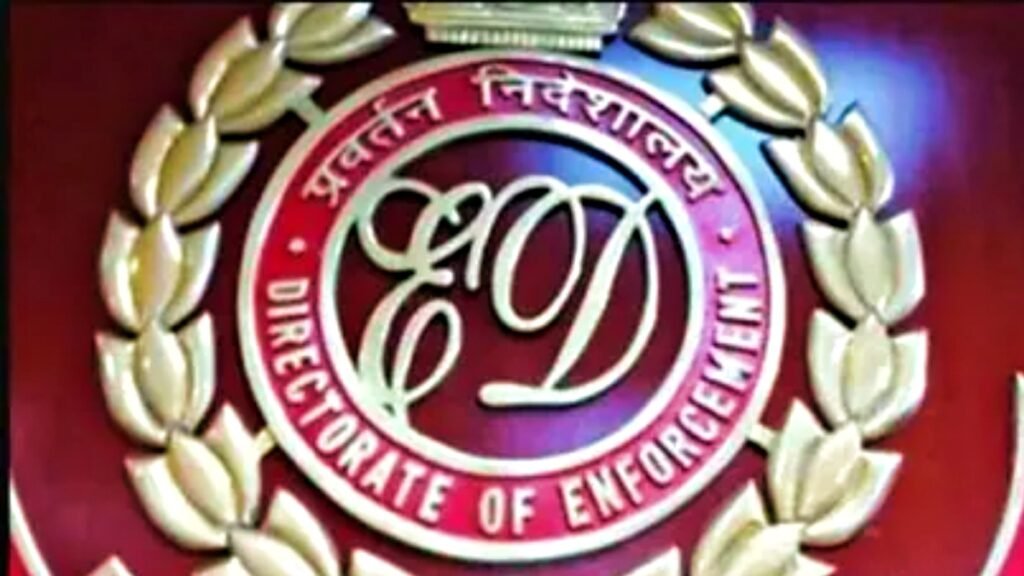
Key Highlights:
- ED’s Operational Shake-Up: After recent court setbacks, the Enforcement Directorate (ED) revises its approach to money laundering investigations.
- Supreme Court Rulings Impact ED: Landmark judgments quashed cases against Congress leader DK Shivakumar and a retired IAS officer.
- Focus on PMLA-Linked Crimes: ED will now prioritize crimes explicitly covered under the Prevention of Money Laundering Act (PMLA) instead of solely relying on “criminal conspiracy” charges.
- Directive Issued: ED Director Rahul Naveen mandates adherence to the new framework to strengthen legal outcomes.
New Delhi: The Enforcement Directorate (ED), often in the spotlight for its high-profile investigations, has recalibrated its strategy following significant legal defeats. The agency, known for its high-stakes raids and arrests of prominent political leaders, including former Delhi Chief Minister, Jharkhand CM Hemant Soren, and Delhi Deputy CM Manish Sisodia, has now adopted a stricter interpretation of the Prevention of Money Laundering Act (PMLA).
Why the Change?
The shift stems from court rulings, particularly by the Supreme Court, which invalidated several ED cases, citing the agency’s overreliance on “criminal conspiracy” charges under Section 120B of the Indian Penal Code (IPC).
One major blow came in cases involving Congress leader and Karnataka Deputy CM DK Shivakumar and a retired IAS officer who served under former Chhattisgarh CM Bhupesh Baghel. Both cases were quashed due to insufficient evidence linking them to predicate offences under the PMLA.
New Directives to Strengthen Cases
As reported by The Indian Express, ED Director Rahul Naveen has issued instructions to agency officials emphasizing that cases must include offences explicitly listed in the PMLA schedule. The act covers around 150 offences, ranging from corruption and tax evasion to violations of the Wildlife Protection Act.
A senior ED official acknowledged the need for this shift, stating, “There is no point in facing failure in court after working hard on the cases. The Supreme Court has made it clear that Section 120B of the IPC cannot be treated as a standalone offence under the PMLA. Directions to this effect have been passed.”
Impact of the Revised Approach
Under the PMLA, the ED initiates cases based on First Information Reports (FIRs) filed by primary investigating agencies like the Central Bureau of Investigation (CBI), state police, or the Income Tax Department. The agency’s focus will now be on ensuring the “preceding offence” in these FIRs directly aligns with the PMLA’s provisions.
Legal Challenges and ED’s Response
In recent years, the ED pursued high-profile cases, some of which hinged solely on allegations of “criminal conspiracy” under Section 120B. However, courts, including the Supreme Court, have consistently ruled that conspiracy alone cannot substantiate money laundering allegations under the PMLA.

By amending its strategy, the ED seeks to bolster its credibility and reduce instances of legal reversals, particularly in politically sensitive cases.
The ED’s recalibrated approach underscores its response to judicial scrutiny and evolving legal interpretations. As the agency aligns its operations with the Supreme Court’s directives, its future investigations will likely focus on airtight cases rooted in substantive PMLA-linked offences.





















































